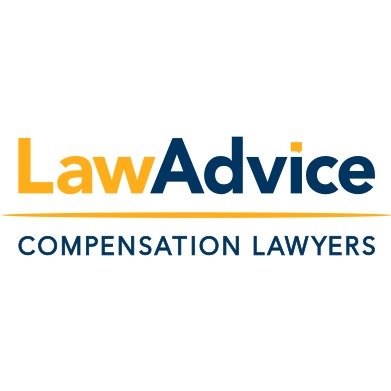Best Workers Compensation Lawyers in Wagga Wagga
Share your needs with us, get contacted by law firms.
Free. Takes 2 min.
List of the best lawyers in Wagga Wagga, Australia
About Workers Compensation Law in Wagga Wagga, Australia
Workers Compensation Law in Wagga Wagga, Australia follows the regulations laid down by the state government of New South Wales (NSW), which aims to cover costs related to workplace injuries, illness, or death. It is designed to provide injured workers with financial stability and support, including weekly payments, lump sum payments for permanent impairment, medical and hospital expenses, and rehabilitation services.
Why You May Need a Lawyer
Securing compensation under the workers compensation scheme can be complex. A lawyer specialising in this field can help you navigate the legalities involved in filing claims, disputing decisions, and ensuring you receive the maximum benefits available to you. You may need a lawyer in circumstances including but not limited to: severe workplace injuries, occupational diseases, conflict with your employer regarding compensation, or an unfairly reduced or rejected claim.
Local Laws Overview
The NSW Government’s Workers Compensation Scheme is the governing law in Wagga Wagga. It is inclusive of the Workers Compensation Act 1987 and Workplace Injury Management and Workers Compensation Act 1998. The scheme particularly focuses on the recovery and return to work of the injured employee, and provides specific legal requirements for notification and claims management on part of both the employer and worker. Failure to comply with these guidelines may lead to penalties and/or premium increases.
Frequently Asked Questions
1. Who is eligible for a workers compensation claim?
Any worker in Wagga Wagga who suffers an injury, illness, or disease due to their work, or who has exacerbated a pre-existing condition due to their job, could potentially be eligible for workers compensation.
2. What should I do immediately after a workplace injury?
Firstly, seek immediate medical attention, inform your employer about the incident in writing, and then visit a doctor to get a Workers Compensation Medical Certificate.
3. Can my employer terminate my employment while I am on workers compensation?
Yes, but there are laws to protect you in this instance. Certain situations involve protection periods wherein your employment cannot be terminated. However, legal advice should be sought for any specific circumstances.
4. How long can I receive workers compensation payments?
The length of time for receiving workers compensation payments depends on your level of injury and incapacity to work. Some payments may cease after a period of time while others may continue as long as the incapacity lasts.
5. Can I make a claim if I'm a self-employed or a contractor?
Certain situations allow for contractors and self-employed individuals to claim workers compensation. However, the specifics can be complex and it would be beneficial to consult with a lawyer.
Additional Resources
In addition to seeking independent legal advice, other useful resources can include the NSW Government's State Insurance Regulatory Authority, which manages the state’s workers compensation system. The Australian Government's Fair Work Ombudsman can also provide useful information related to workers rights and obligations.
Next Steps
Should you need legal assistance in Workers Compensation, the first step is to consult with a lawyer specialising in the field. They will provide legal advice tailored to your situation, help with the claims process, and guide you on how to navigate through potential disputes or complications. Do remember to bring all relevant documentation such as medical records and incident reports to your consultation.
Lawzana helps you find the best lawyers and law firms in Wagga Wagga through a curated and pre-screened list of qualified legal professionals. Our platform offers rankings and detailed profiles of attorneys and law firms, allowing you to compare based on practice areas, including Workers Compensation, experience, and client feedback.
Each profile includes a description of the firm's areas of practice, client reviews, team members and partners, year of establishment, spoken languages, office locations, contact information, social media presence, and any published articles or resources. Most firms on our platform speak English and are experienced in both local and international legal matters.
Get a quote from top-rated law firms in Wagga Wagga, Australia — quickly, securely, and without unnecessary hassle.
Disclaimer:
The information provided on this page is for general informational purposes only and does not constitute legal advice. While we strive to ensure the accuracy and relevance of the content, legal information may change over time, and interpretations of the law can vary. You should always consult with a qualified legal professional for advice specific to your situation.
We disclaim all liability for actions taken or not taken based on the content of this page. If you believe any information is incorrect or outdated, please contact us, and we will review and update it where appropriate.








